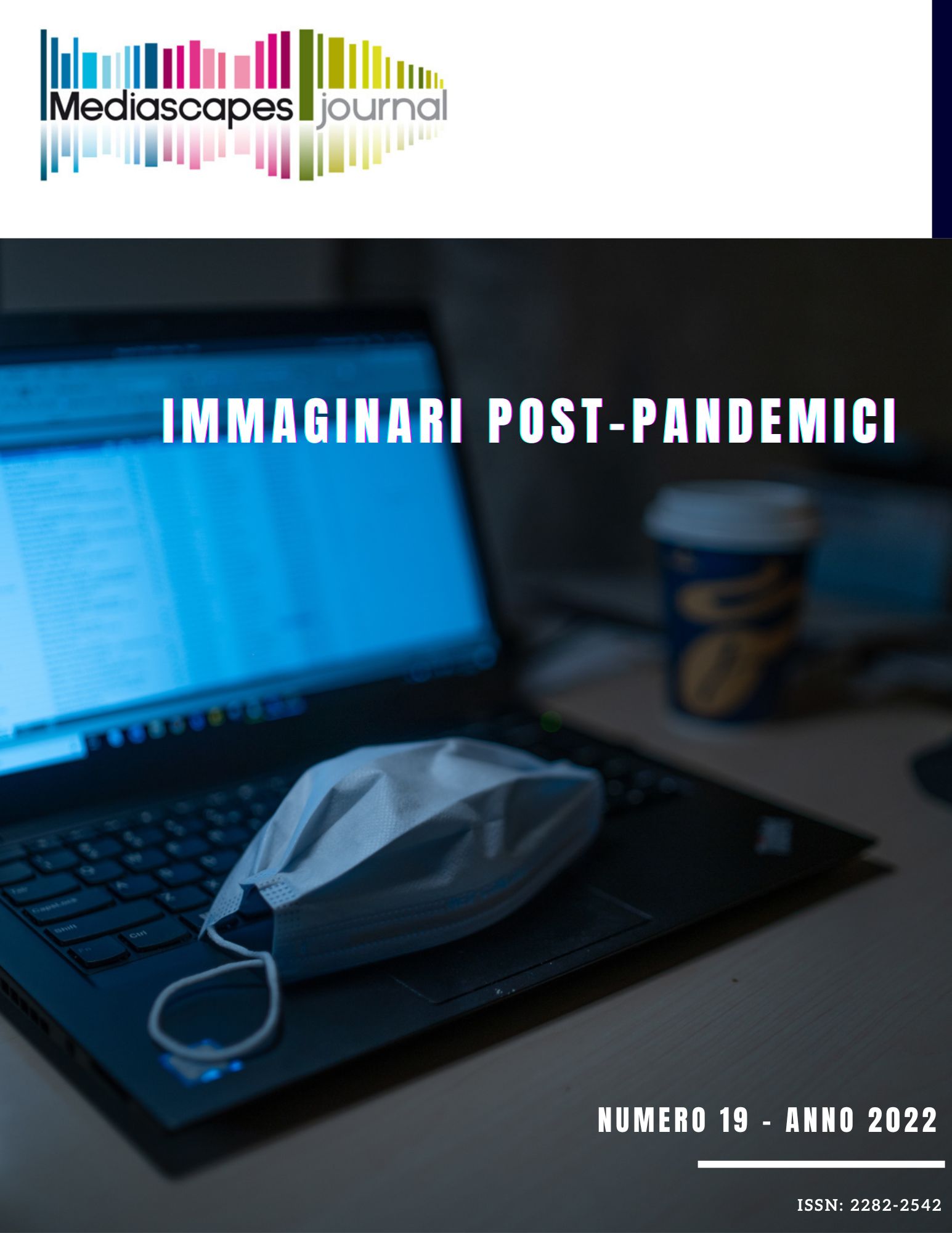Counter-Narratives Against Prejudice
How Second-Generation Youth Reverse Media Representations
Parole chiave:
second-generation, Media representations, islamophobia, counter-narrativesAbstract
This paper deals with the OLTRE project (ISF - DG Migration and Home Affairs, EU), funded to counter the radicalization of second-generation migrants in Italy and created by a network made up of universities and private companies. This article shows the results of a study regarding the involvement of second-generation youth in the co-production of the social campaign for online communication, representing the outcome of the OLTRE project. The guidelines for the campaign came from our in-depth sociological field research (42 qualitative interviews of 2G youths, 18-30 years, in 7 Italian towns (Palermo, Cagliari, Rome, Bologna, Milan, Padua, Turin) and from theatre laboratories created by second-generation youth collecting narratives, representations, stories and emotions about their descriptions of the radicalization risk and protection factors, etc. This corpus was useful for the social communication campaign in preventing radicalization, engaging research participants as key players, co-designing counter-narrative content and studying their viral dissemination with the support of young, second-generation content creators, and working on social networks in order to promote cultural change. The paper analyses the process of creating media content intended for the social campaign of the OLTRE project: from the representation that second-generation youth perceive as distorted to the product that provides a counter- and/or an alternative narrative. This paper shows how the young content creators interacted with each other, creating new contents, and highlighting how counter-narratives may represent useful tools for deconstructing complex issues such as Islamophobia or radicalization.
##submission.downloads##
Pubblicato
Come citare
Fascicolo
Sezione
Licenza

TQuesto lavoro è fornito con la licenza Creative Commons Attribuzione 4.0 Internazionale.
Gli autori che pubblicano su questa rivista accettano le seguenti condizioni:
- Gli autori mantengono i diritti sulla loro opera e cedono alla rivista il diritto di prima pubblicazione dell'opera, contemporaneamente licenziata sotto una Licenza Creative Commons - Attribuzione che permette ad altri di condividere l'opera indicando la paternità intellettuale e la prima pubblicazione su questa rivista.
- Gli autori possono aderire ad altri accordi di licenza non esclusiva per la distribuzione della versione dell'opera pubblicata (es. depositarla in un archivio istituzionale o pubblicarla in una monografia), a patto di indicare che la prima pubblicazione è avvenuta su questa rivista.
- Gli autori possono diffondere la loro opera online (es. in repository istituzionali o nel loro sito web) prima e durante il processo di submission, poiché può portare a scambi produttivi e aumentare le citazioni dell'opera pubblicata (Vedi The Effect of Open Access).


